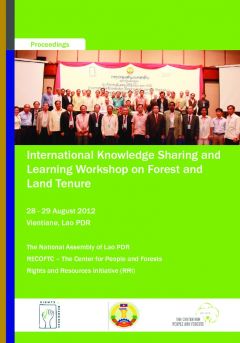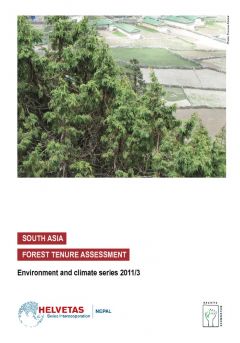Focal point
Location
The Rights and Resources Initiative is a strategic coalition of international, regional and community organizations engaged in development, research and conservation. Together, we are working to encourage greater global commitment and action on pro-poor tenure, policy and market reforms.
The RRI coalition is formed by a group of core Partners who conduct work in specific areas of their regional and thematic expertise. Partners also engage with a wide group of collaborators who participate in and support RRI activities around the world. RRI is a strategic coalition that goes beyond the traditional set of international development actors to involve a wide spectrum of organizations, each of which provides a critical perspective in the larger chain of actors necessary to advance change.
Our Mission
RRI’s Mission is to support local communities’ and indigenous peoples’ struggles against poverty and marginalization by promoting greater global commitment and action towards policy, market and legal reforms that secure their rights to own, control and benefit from natural resources, especially land and forests.
Global Challenge, a Global Opportunity
Forests cover close to 30 percent of the world's land area, and more than a billion people rely on forests to a significant extent for their food, fuel and income.
An estimated 350 million indigenous and tribal peoples are at least partly dependent on forests, including some 60 million who are substantially dependent on forests for their subsistence and livelihoods. Forests are also particularly important to poor women, who shoulder much of the burden for hauling wood and collecting and marketing forest products.
Dominant models of forest industry and conservation have often exacerbated poverty and social conflicts and have precluded pro-poor economic growth. The lack of clear rights to own and use forest land, develop enterprises, and trade in forest products has driven millions of forest dwellers to poverty and encouraged widespread illegal logging and forest loss.
The world will not meet national and global goals to reduce poverty and protect the environment unless poor peoples' rights to land and resources are strengthened. Neither will the world effectively mitigate or adapt to climate change without clarifying local tenure and governance. The next two decades are critical--both for the poor and for the forests.
There are reasons for optimism. Organizations of indigenous peoples and forest-dwelling communities are gaining voice and opportunity, and after decades of limited action many countries are beginning to consider far-reaching legal and policy reforms. There is a major opportunity to advance the rights and livelihoods of forest peoples by establishing the institutional foundations for sustained conservation and forest-based economic development.
Resources
Displaying 76 - 80 of 109International Knowledge Sharing and Learning Workshop on Forest and Land Tenure
An international workshop on Forest and Land Tenure Reform was held in Vientiane on 28-29 August, 2012. The workshop was hosted by the National Assembly of Lao PDR, with support from RECOFTC – The Center for People and Forests through the Rights and Resources Initiatives (RRI). The key objectives of the workshop were:
What Rights? A Comparative Analysis of Developing Countries’ National Legislation on Community and Indigenous Peoples’ Forest Tenure Rights
Presents a legal analysis of the national legislation that relates to Indigenous Peoples’ and communities’ forest tenure rights at a global scale by assessing whether the legal systems of 27 of the most forested developing countries of the world recognize the rights of Indigenous Peoples and communities to access, withdraw, manage, exclude and alienate to forest resources and land. The countries included in this study are home to 2.2 billion rural people and include approximately 75% of the forests in the developing world.
South Asia Forest Tenure Assessment
An increasing body of evidence shows that forest governance and tenure reforms are central to mitigating a number of problems related to forests, and seriously affect forest-dependent people. On this backdrop, this assessment of South Asian forest tenure systems was initiated to provide a greater understanding of the tenure trends and status in the region that can potentially inform the policy process. This is the synthesis report of forest tenure assessments prepared by country consultants in six countries in South Asia: Bangladesh, Bhutan, India, Nepal, China and Pakistan.
Respecting rights, delivering development: forest tenure reform since Rio 1992
This report evaluates the progress achieved in forest management by indigenous people and local communities, which was set as a key objective at the 1992 Earth Summit held in Rio de Janeiro, Brazil.
The challenges of securing women's tenure and leadership for forest management: the Asian experience
This collection of analyses spotlight cases and interviews with prominent women activists involved in natural resource management in Nepal, Indonesia, the Philippines and China to better understand the diverse challenges faced by Asian women in relation to limited rights and insecure tenure. Despite contextual differences, the studies identify a number of similarities and trends.







